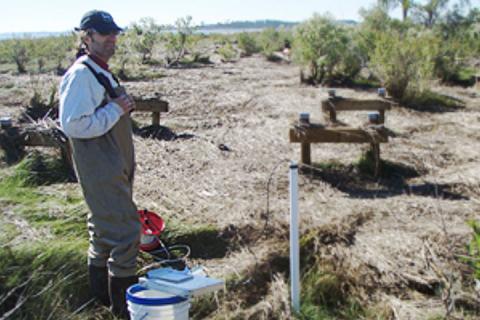
As the climate shifts, coastal habitats face a number of threats—changes in precipitation patterns, higher temperatures, rising seas, and invasive species. Land managers and decision makers need to know which habitat types are most vulnerable to these changes in order to prioritize their actions. In this project, several National Estuarine Research Reserves collaborated to develop the Climate Change Vulnerability Assessment Tool for Coastal Habitats (CCVATCH). The tool helps decision makers evaluate a habitat’s vulnerability to climate change and prioritize it for conservation or restoration. South Carolina’s North Inlet-Winyah Bay Reserve and the Chesapeake Bay Virginia Reserve worked with local partners to refine and pilot this tool and share it across the reserve system.
This project and the CCVATCH tool it developed laid the foundation for subsequent projects to better understand local and regional climate change vulnerabilities in the reserve system. This includes two science transfer projects: Assessing How Climate Change Will Affect Coastal Habitats in the Northeast, and Understanding the Vulnerabilities of Southeastern Coastal Habitats to Climate Change Impacts.